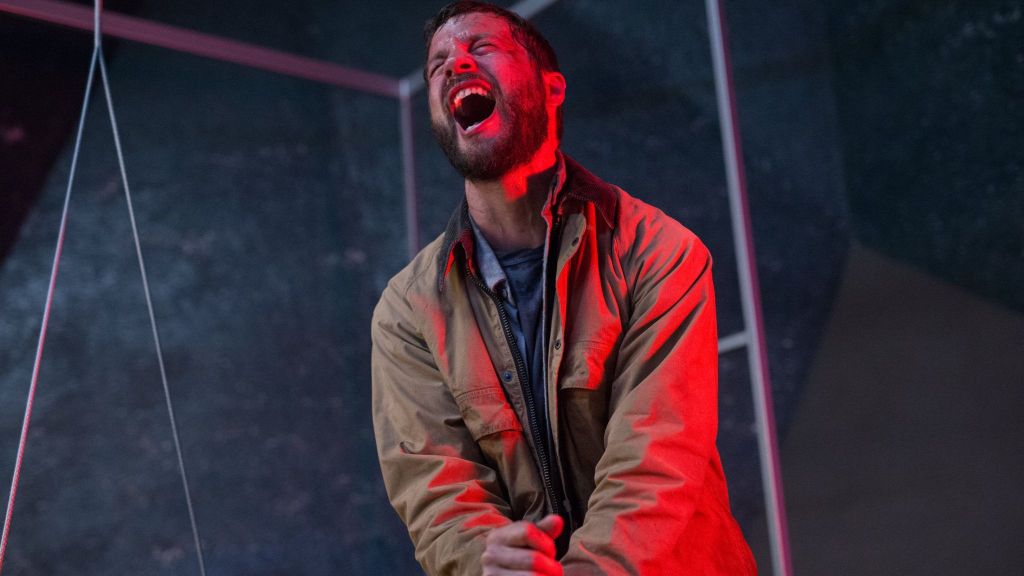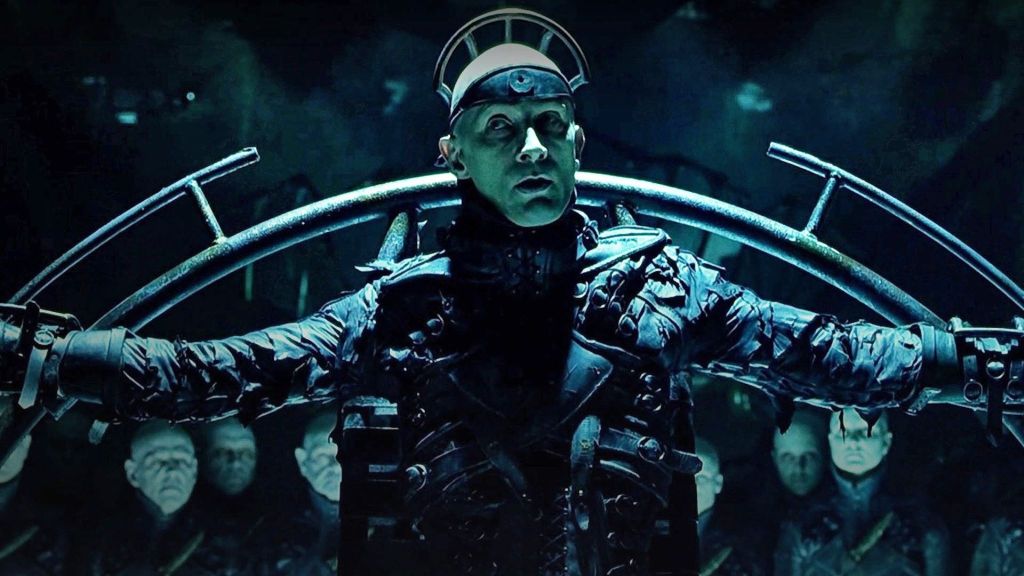
Hollywood loves a good franchise. When a movie strikes gold, studios are often quick to mine that success for sequels, prequels, spin-offs, and anything else that can expand the universe and keep audiences coming back for more. Yet, every so often, a sci-fi film comes along brimming with such an inventive premise, such a rich world, and such compelling ideas that it practically screams “franchise potential,” only to remain a standalone masterpiece. These are the films that leave you buzzing with questions, imagining all the other stories that could be told within their unique frameworks. But while there’s always time to bring an interesting concept back, the potential of a few underrated sci-fi movies remains untapped.
We’re diving into three such underrated sci-fi movies that, despite their clever concepts and sprawling worlds, never quite launched the cinematic universes they so richly deserved. From cyberpunk body horror to reality-bending noir and identity-dissolving thrillers, these movies laid the groundwork for expansive storytelling that, for one reason or another, didn’t fully materialize, leaving fans to forever ponder the “what ifs” of their lore.
1) Upgrade

Leigh Whannell’s 2018 cyberpunk action-thriller Upgrade slammed into audiences like a shot of adrenaline, offering a visceral and surprisingly thoughtful story of revenge in a near-future dominated by technology. The film stars Logan Marshall-Green as Grey Trace, a technophobe mechanic whose life is shattered when he’s left paralyzed and his wife is murdered during a brutal attack. His only chance at retribution comes via Eron Keen (Harrison Gilbertson), a reclusive tech mogul who offers Grey an experimental computer chip implant called STEM. This AI marvel not only allows Grey to walk again but can take full control of his body, turning him into an incredibly efficient fighting machine. What follows is an action-packed quest for answers that also delves into questions of autonomy, the nature of consciousness, and humanity’s reliance on technology.
[RELATED: 10 Sci-fi Movies That Still Need a Sequel Years Later]
The world of Upgrade is ripe for further exploration precisely because it only scratches the surface of its technologically advanced setting. We see a society where cybernetic enhancements are becoming increasingly common, with individuals possessing everything from integrated weaponry to advanced physical capabilities. The film even hints at a clandestine world of military experiments and corporate entities vying for control of these powerful augmentations. Of course, an Upgrade franchise could delve into the origins of STEM, explore other individuals “upgraded” with different AI systems, or examine the societal impact of such widespread human enhancement. While a TV show sequel was announced in May 2020, aiming to expand on this universe, it unfortunately never came to fruition, leaving the vast world of Upgrade largely unexplored.
2) Dark City

A visually stunning and philosophically dense cult classic, Alex Proyas’ 1998 neo-noir science fiction film Dark City throws viewers into a world as mysterious as it is terrifying. In Dark City, John Murdoch (Rufus Sewell) awakens in a hotel bathtub with amnesia, implicated in a series of gruesome murders. As he tries to piece together his identity and clear his name, he discovers he’s living in a perpetually nocturnal city manipulated by a group of pale, sinister beings known as the Strangers. These entities possess powerful psychokinetic abilities, including “tuning,” which allows them to alter the city’s architecture and implant new memories and identities into its unsuspecting human inhabitants as part of a disturbing experiment. Murdoch learns he also possesses this tuning ability, marking him as an anomaly and a threat to the Strangers’ control.
The sheer audacity of Dark City‘s premise is practically begging for more stories. The Strangers, with their collective consciousness and enigmatic goals of understanding the human soul, are fascinating antagonists whose origins and ultimate fate could fuel countless narratives. What other anomalies like Murdoch might exist or have existed? How many iterations of the city and its inhabitants have there been? Dark City’s ending, where Murdoch defeats the Strangers and creates a sunlit world, also creates a new status quo ripe for exploration, as we are unaware if the remnants of the Strangers’ technology can still influence the world. Director Alex Proyas mentioned a desire to explore this universe further, and there was talk of a Dark City TV series for years, though nothing concrete ever emerged beyond a director’s cut of the film that further fleshed out its world and a short film Proyas released in 2021.
3) Possessor

The 2020 sci-fi psychological horror film Possessor, directed by Brandon Cronenberg, unfolds into a deeply unsettling and visually arresting exploration of identity, corporate espionage, and the terrifying implications of invasive technology. The film stars Andrea Riseborough as Tasya Vos, an elite corporate assassin who uses brain-implant technology to inhabit other people’s bodies, driving them to commit assassinations for high-paying clients. After each hit, she forces the host to commit suicide, allowing her to return to her own body. However, the psychological toll of these possessions is immense, and Tasya finds herself increasingly detached from her own life and struggling to maintain control during her assignments, particularly when she inhabits the body of Colin Tate (Christopher Abbott) for a crucial mission.
The chillingly plausible near-future world of Possessor presents a fertile ground for many stories. The secretive organization Tasya works for, its methods, and the full extent of its influence are only hinted at, offering a shadowy corporate landscape perfect for intricate thrillers. In addition, Possessor never addresses other applications of its core technology beyond assassination. Sequels or spin-offs could focus on other agents, the origins of the technology, or even the perspective of individuals fighting back against this ultimate form of violation. Furthermore, Possessor‘s profound existential questions about identity, free will, and the commodification of the human body offer a rich thematic playground that other stories could explore.
Which underrated sci-fi movie do you think had the most franchise potential? Let us know in the comments!
The post 3 Underrated Sci-fi Movies That Should Have Started Franchises appeared first on ComicBook.com.
